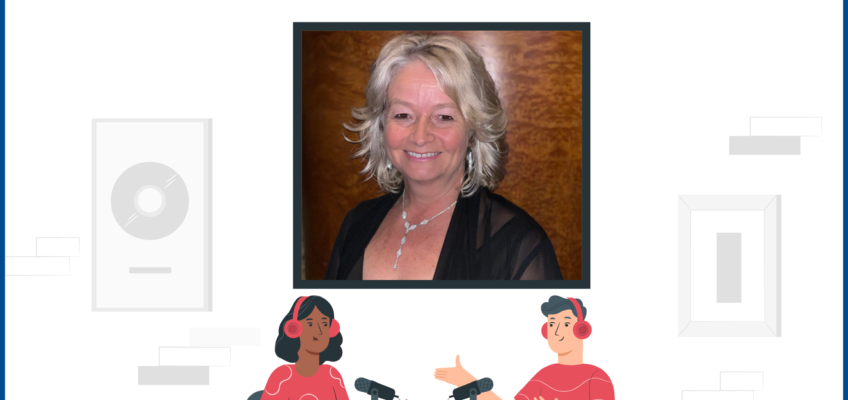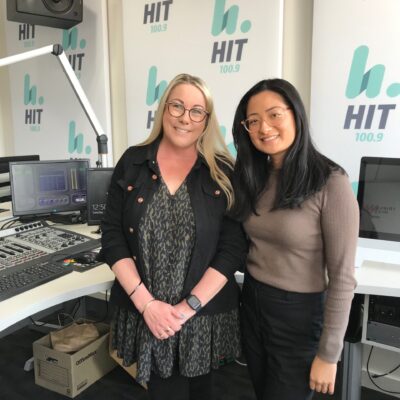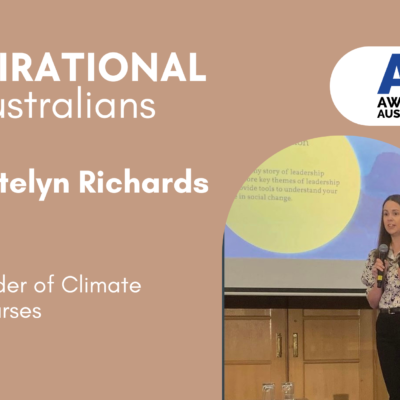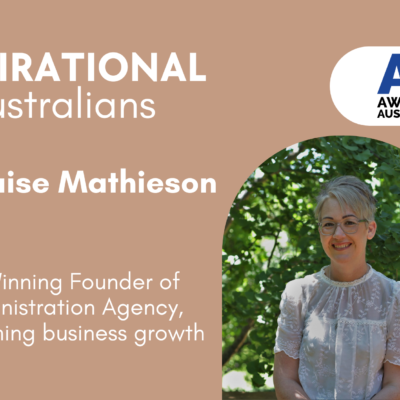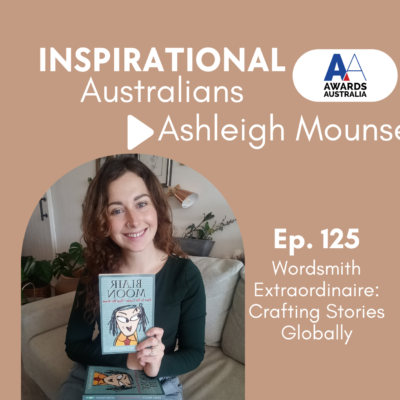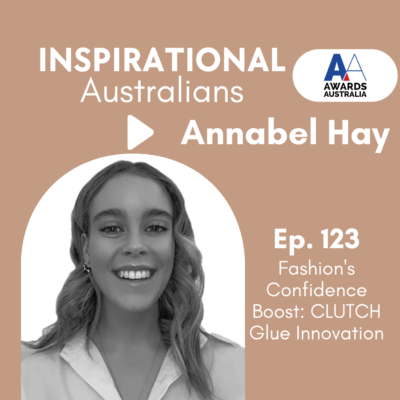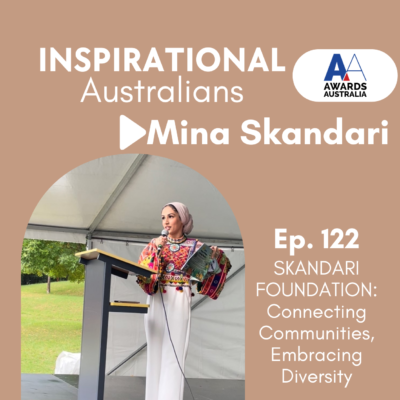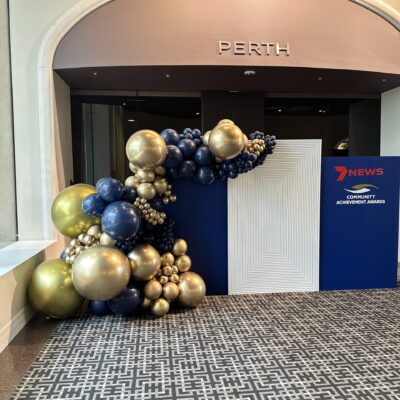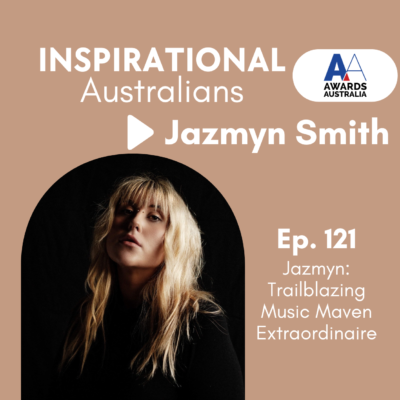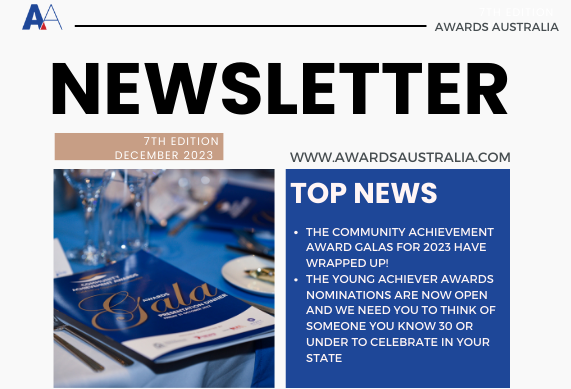I am currently employed as a Digital Technology teacher Year 1-6 and coordinate STEM education and Sustainability at Dunsborough Primary School. Previously I taught Drama and Media Arts for many years developing confidence in students and giving them the opportunity to participate in whole school community Musical performances. I have developed and led whole school and community initiatives in sustainability education, the Arts and STEM education in Regional Western Australia for over 20 years. In the past 15 years at Dunsborough Primary I have had great impact in the sustainability education of the whole school community. 9 years of Annual Bay OK Day whole school environmental, science and marine education Excursion (750 + providers and community), 12 years of Active Transport Walking School Bus, 11 Years Waterwise, 11 Years Waste Wise, Solar Schools Project, 4 Sustainability Expos at Centrepoint Shopping Centre, developed an outdoor classroom, Science in the Veggie Garden, Chooks, Compost and a seasonal frog habitat. I manage the school partnership with Dunsborough Coast and Land Care to improve biodiversity, protecting the critically endangered western ringtail possum, and through revegetation of the Blythe Reserve and other locations. In 2019 I added soft plastics recycling to our regime and significantly reduced our landfill. In teaching digital technology I use the United Nations 17 Sustainable Development Goals as an underlying context for project work where students create digital solutions to real problems using robotics and coding applications. Students share their learning and develop an increased global awareness through these projects. In 2020 my involvement in the new Dunsborough Djiljit Mia Aboriginal Themed Nature Based Gathering Place saw me work with the local custodians to determine culturally sensitive, appropriate reconciliation outcomes to be achieved through the project. These included acknowledgement of people place and country, caring for country through revegetating the adjacent Brook and ‘Wongi’ sharing stories. Students are contributing to the revegetation element which will help connect them to the place and its purpose.
In this episode:
- We hear how Helena has taken on the challenge to not just teach about sustainability, but to bring it to life for her students
- We learnt that Helena swims in the ocean every day and how it has had a really great impact on both her general and mental health
Links
Connect with Helena on Twitter
Connect with Helena on LinkedIn
Want to know how to Rate and Review a podcast, see this article
Follow us on our Inspirational.Australians Instagram Page
Want to nominate someone? (It can take as little as 2 minutes to recognise someone making a difference)
Like some more information on Corporate Partnership?
Transcript
[00:00:05] Annette
Welcome to the Inspirational Australians podcast, where we check to people making a difference in their communities and in the lives of others. And here is your host for today, Geoff Griffin
[00:00:21] Geoff
Welcome to the Inspirational Australian podcast stories of inspiring achievements and community contribution. Every week we will celebrate an award program category Winner or finalist. We hope you’ll be inspired and encouraged to know that Australia is in good hands,
[00:00:40] Speaker 2
, together with our corporate partners and not for profit partners, Awards, Australia, showcase ordinary people from right across Australia. Doing extraordinary things. If you enjoy hearing the stories of our Inspirational Australians, please subscribe. Write us and review us. We really appreciate it.
[00:01:02] Geoff
This week’s Inspirational Australian podcast guest is Helene Nicholson. It was presented as a finalist in the prestigious Curtin University School of Education teaching excellence award. Last year. halima has a passion for sustainability, education and as a technology teacher is three to six. And she’s also coordinator of Stem education and sustainability at dunsborough primary School as well. Eileen, welcome to the podcast.
[00:01:33] Helena
Thank you very much, Geoff. It’s great to be chatting with you.
[00:01:38] Geoff
Yeah, we’re looking forward to it. You know, you do an amazing work and I think we all realize and if we don’t start to realize that our Children spend more time with their teachers than they do at home with us. So we rely heavily on our teachers and they make a massive contribution to the future of our Children, not just for one year, of course, but all through their education. So we acknowledge the amazing work that you do and that of the teachers said, thank you so much. You’ve been teaching for over 20 years now. You must really love it.
[00:02:17] Helena
I certainly do. I have a lot of fun. I work as a specialist teachers teacher, so I have a lot of students that I interact with over the course of the week. And I’m really inspired by their creativity. I love tapping into their curious minds and always learning myself and I sit comfortably learning with these Children, often, especially in the technology space. And I really try
[00:02:47] Geoff
sponges, sometimes
[00:02:48] Helena
they are. And I think, you know, as educators today, we can’t feel like we have all the answers because the Children can Google the content. What we’re doing is facilitating for them.
[00:03:01] Geoff
So that wasn’t the case in my day. And technology is an extraordinary thing to work in or against, you know, Watson technologies and tile for 3s to 6s as a technology specialist.
[00:03:17] Helena
So I work in both the digital and design and technology space. So there’s two strands to that learning area. One of the eight learning areas for the National curriculum, for all students, it’s mandated. So in digital technologies, the Children learn to code. They don’t use block language to start, which is quite intuitive for them and does allow for a great level of creativity. They also learn everybody to have lots of different devices that the students can use and control with code. A big part of my content in digital technologies is the safety, which everyone knows is extremely important in understanding the risks and ways to be a responsible digital citizen. Children also learn computer systems and then in design and technologies, they learn design thinking and create solutions. And look at different contexts, so they look at engineering and materials and we have lots of fun.
[00:04:18] Geoff
In today’s world, it sounds so essential going back there was no such thing of course in, in my day, but so important. All those things that you talked about are all critically important. So you must feel very empowered to be able to teach kids these really essential qualities. Skills that
[00:04:40] Helena
I do and I don’t take it lightly. I have really strong conversations with the kids. And the thing is sometimes as an educator in technology, you have a conversation where you’re teaching Children about something that you kind of go is this too soon to teach them this, but that we took kids out of the 24 that need whatever the messages. But the point is if you have that conversation with them now they have the foundation for a response that is informed when they are actually faced with that particular issue. It’s really interesting or challenging.
[00:05:18] Geoff
So true. So what sparked your interest in becoming a teacher in technology?
[00:05:25] Helena
It was actually a School decision and the technologies curriculum was mandated about five years ago and I’ve done it for primary schools, a large School. We have 650 students and the administrators made a decision to have technologies is a specialist area just to ensure that the introduction of that new technology curriculum was done with integrity across the whole School. So at the time I was actually working as a drama specialist, I did that at the School for about eight years. So they said look, just pop out of drama for a couple of years. And then we’ll address it. But I haven’t actually got back to drama teaching, but there was a natural connection. I’m really interested in technologies and in the drama space, I was already doing movie making and green screen. And using iPads as tools for creativity. So that was the starting point and I said, sure, I’ll do that. And I haven’t got back, but that’s the School decision. And there’s, there’s a lot of creativity going on in my technology room.
[00:06:32] Geoff
Well, sounds like you’ve embraced that and obviously had great faith in you to put that burden on your side. Good on you, and good on them for making that decision. How do your students embrace the technology? I love it. You know,
[00:06:48] Helena
I think you know, the answer to that question, what kids don’t love technologies. There’s 100 percent engagement. The kids are always having fun. They’re having opportunities to be creative and collaborate collaborative because those are the Skills that critical thinking, collaboration and creativity that we have to have them set up for. That’s what is required for their future employment. So having opportunities to work in teams on duty in different whether it’s a virtual world on education, Minecraft platform where they are working collaboratively to build something, to create a solution or whatever the context they are developing. These Skills and technologies is the vehicle for that. So it’s great,
[00:07:30] Geoff
fantastic. Must be wonderful to have 100 per cent interest. That must be difficult in all of the other subjects getting out. And that’s, I not exactly a eurozone coordinator matter, the Stem education sustainability. I know you are a little bit passionate about that. What does that involve, particularly the Stem.
[00:07:54] Helena
So Stem education is not a curriculum area. Stem is a way of teaching, so allowing Children to create solutions where they are integrating the curriculum areas, whether it’s science with technology or technology with engineering, or science and maths and making sure that you’ve got that, that broad curriculum link with whatever the activities that you do we’ve come a long way from Stem being just who can build the tallest spaghetti tower? It’s not that anymore. So we work as leading teams and we have Stem focused activities that are linked to a main curriculum, descriptor or outcome of each semester, where all of the classes make sure that they do a really good job of that particular unit. And then that’s used in moderating and in just ensuring that the kids are getting the opportunity for Stem. But it’s also strongly linked to the design and technologies curriculum that is mandated. So a Stem learning informs the design and think design and technologies curriculum and then reporting
[00:09:00] Geoff
so beautifully interlinked. Yeah, and it sounds, sounds wonderful. Once coins come such a long way away, everything integrates very cleverly to get the best possible outcomes for
[00:09:12] Helena
students. I think with regard to sustainability though and how that works in the School setting is that I’ve been running this committee for about 13 years. And it’s a really broad committee with administrators on board and at least one teacher from each learning area. We have industry representatives and parent representative, so it’s all beautifully linked. And then of course we focus on the five areas of sustainability with lots of different host School events. So water conservation, waste Management, active transport, energy conservation, so have solar panels and biodiversity. So lots of tree planting and possum surveys and lots and lots and lots of things going on.
[00:09:53] Geoff
Fantastic must be fascinating and very interesting for the kids have so much to occupy and grow their minds. Are parents able to support their kids adequately with homework and subjects like technology?
[00:10:07] Helena
I think so we, a lot of schools have digital portfolios to demonstrate the learning for students. And so the teachers are tuned in to what’s going on with the class through what we use a platform called seesaws. So the students post work and the parents see it and comment on it. And there’s this beautiful connection between home and School. And I think, you know, parents today choose to keep up things like the mandatory QR codes that have happened. It’s really stepped up our community in the use of technology. So yeah, I think the parents can support their kids. And if they can’t, you know, the doors open and parents do come and talk to me about supporting these students.
[00:10:54] Geoff
When you see the parents is their first word help. Well,
[00:10:59] Helena
- Hello. Yes.
[00:11:02] Geoff
What initiatives have you introduced in technology and some of the Stem ideas in your 15 years at Dunsborough Primary?
[00:11:12] Helena
Well, when I started in the technology’s role, I didn’t feel like I just wanted to step through the descriptors in the curriculum and teach them in isolation. So my approach is to always integrate with other subject areas, so I find out what the kids are doing in a year level in the science space. And then I might get them to create an animation online to demonstrate their understanding in that, that learning area. And I also grabbed hold of the United Nations sustainable development goals in my first year in this role. Because I wanted to provide a context for learning if I couldn’t link it to another curriculum area. And so the Children have challenges where they can use a digital device and or coding to create a solution that works towards solving the United Nations sustainable development goals, the 17 of them to be achieved by 2030. So they really have a good understanding of those. That’s a whole School approach, and it gives them a really great context. So they might be looking at quality education or decreasing poverty or clean water or life below the water life on land, whatever the goal is. And then they are working towards that with whatever they create. So it gives them a really great hook initiatives Stem family challenge. So we have an annual Stem family challenge, so the Children work with their families to complete a challenge last year, 2021, we did the sustainable house, so there were parameters, we had a really cool, sustainable architect, come and do the judging and they built these models and they had design parameters that had to demonstrate sustainable practices, but then use recycled materials to build them and we had heaps of entries and that was really inspiring Stem club. So I have a Stem club for you, for fives and sixes during lunch time. Once a week and in the design and tech space, I’m talking about motivation and technologies and how much they love them. At the end of last year, I did a year five project with, with sewing, so design and tech bought the sewing machine. Got a couple of parent helpers and the Children had to Design and construct a lunch bag that was reusable to reduce the amount of plastic that was disposed. So I’d rather do this and play Minecraft. I heard a unified voice. So that was pretty inspiring.
[00:13:39] Geoff
You’ve nailed it. Now that’s, that’s absolutely brilliant. And it sets a foundation for sustainability and it’ll be outside the square thinking for our young ones when I get into high School when they leave School. So I reckon that it’s absolutely brilliant, really howling and I reckon you’re also very passionate about the environment. We talked about sustainability, sustainability a little bit. What led you down this path? Originally,
[00:14:09] Helena
a farm girl country chick. I’ve always been connected to nature. I live in a beautiful part of the world in the South West of Western Australia we a biodiversity hotspot. So we have incredible biodiversity. We have plants and animals or plants that grow here that grow nowhere else in the world. And I had this, I had this experience at my School in the early days where there was the 2000 year 2000 explosion of population. And we had to take a Bush area and turn it into a playground. And there were about four spider orchids. I don’t know whether you know the spider or could, but they were growing and they only grow in a particular place. The soil, but biome has to be right. And they were there and I spoke to the gardener. Said look, can you just cordon off this little area? ? We need to save these orchids and he got busy. It didn’t happen in the 75 kids trap over the awkward and I will go on forever. So I just went right on it to try and do something about this. So I’ve been, I’m the president of a local Landcare group and have been for about seven years and been a member for longer than that. And so we have a really great vision and we do a lot on ground to help rehabilitate Brooks and lead a clean ups and advocate for for sustainable development. There’s still development going on in this part of the world, but we just need to make sure that the environment is right up there in the considerations.
[00:15:34] Geoff
And it sounds like we need to find a sustainability award sponsor so that Dunsborough Primary can be nominated for
[00:15:41] Helena
that. We’ve already won it. Yes, we won that about five years ago. The Landcare sustainability Awards was brilliant.
[00:15:52] Geoff
Oh, you’re way ahead of me on it. Are there any other initiatives or what are some of the initiatives you’ve talked about a couple just in there? Any other initiatives that you’ve been
[00:16:02] Helena
so we’ve had, we’ve had chickens at School for about 12 years. We have Children advocates called the green ambassadors, which has been running for that length of time to so each class has two members that work for their class. And they make sure the lights are off and they do the recycling and do other little jobs and then they’re part of the leadership team. So they report to the School fortnightly. On what’s going on in the sustainability space. We’ve had a veggie garden forever and ever, and then a couple of new things that waste station, so 750 kids in the School, three places to get rid of rubbish. So we have four different choices. We have a flowchart to show where things go. And then in 2021 we introduced the green chain so these guys are monitors and I stand at the bench, just make sure there’s cross-contamination is always a problem with weed bins. So the green team’s new initiative and then for the last couple of years is we’ve also been recycling stuff. Plastics, which has been amazing. So it’s one of the choices that the waste
[00:17:07] Geoff
and the garden, what’s, what’s the main production item?
[00:17:13] Helena
Lots of herbs. So we have, we close the loop at School, so we have a five day canteen and most of the food is homemade in there. So the canteen works with us to work out what needs to be grown. So there’s lots of herbs that always in the garden and they just negotiate.
[00:17:31] Geoff
And you look at the signs of the
[00:17:33] Helena
garden where you have yes, science in the veggie garden. So I developed programs, garden gurus and actually created activities for the students to do in the garden that are linked to the science, to scriptures. That hasn’t been running for a couple of years because we had a change in staff, but the garden is available for Teachers to go in and work when they’re doing the biological science. And so the spice is there, as well as the work that they are going to
[00:18:02] Geoff
investigate. And you’ve got a seasonal frog habitat.
[00:18:06] Helena
Yes, that’s another one of my babies. I was lucky enough to sweet talk, a local fellow, his great grandfather built the Busselton jetty, which is a mile long out to sea and ship yogurt’s and had a whole bunch of granite and he brought it in. And so we’ve got this beautiful long granite space that when the rain comes it overflows and then it goes into the storm water. So we’ve had frogs in there that the Tradies built and they become and most of the frogs in the South West are burrowing frog, so they don’t need to have permanent water source. So it works a treat.
[00:18:44] Geoff
Now the themed nature basically,
[00:18:47] Helena
guys have been involved through the School and the Landcare group in with Djiljit Mia , which I was fortunate enough to be on the committee and it was the first time our local were Dandi People had were acknowledged in our community and built this Aboriginal think nature based gathering place. And my role was really that rehabilitation because it was right on a brook. But we worked collaboratively. The Children did art at our School and then went into the the space and the actual space is based on the story of the and people. So it would only people would walk down the dog lap, walk to the sea, and there still remains. The ancient fish traps, so with the tidal flow, the, the fish would be caught in the rock circles and there still remains of them there now. And then they would take the fish and then they would dry them and smoke them over on peppermint branches over fire and they would gather together in the season. So they actually geojit mind gathering places built based on that. So it has a dry water course and it has bits and pieces that the kids can actually manipulate to create nature playing. So it’s, it’s fantastic and it’s right in the centre of town. So the kids are involved in planting and the artwork is great.
[00:20:02] Geoff
Great for the Children also to be able to understand our Aboriginal heritage.
[00:20:08] Helena
Totally.
[00:20:10] Geoff
That’s fantastic. And we can learn a lot about culture if we look back, get more involved in our Aboriginal cultures locally. More
[00:20:21] Helena
broadly. Yeah, I think the wishes of the Wadandi people at the time were acknowledgement of country. And as I say that hadn’t occurred until that point, caring for country and rehabilitating the brook and getting the native sea celery and other endemic species back in there. And also wongi, which is the stories. And so those stories are actually carved on wood and visitors to the space can, can learn about what I was just explaining to you. So it’s pretty special.
[00:20:48] Geoff
Sounds like you’re is affecting the wishes science. That’s awesome. You know, what legacy will you leave you have obviously, can contribute in given what’s your legacy going to be?
[00:21:02] Helena
Well, believe that, you know, these conversations have been going for a long time and the conversations don’t happen just at School, but I go home and there’s the pester power and there’s been behavioral change. So I think raising awareness and the behavior change is, is what is the key for me? I think my other legacy is another special thing that I started 11 years ago now called by Arcadia. So I decided that we needed to celebrate our sustainability. And annually we have a excursion to the beach so we can walk to the beach for 750 kids at the beach all at the same time. And they have activities that they do that are based on sustainability, science, education, marine safety, and we’re all down there. And this coming November, it will be number 10, it would be 11, but we had to cancel in 2020. But all of the students are there from Katy six and they work on learning about the catchment, the ocean crabs, the fisheries, their multi different providers from government sector and also private providers. And so hopefully that will continue. And that is, my leg is part of my legacy too.
[00:22:18] Geoff
To raise awareness is one thing, but to make change is really special and significant. So it’s no wonder that you became a finalist in last year’s Curtin University School of Education teaching excellence award, which of course is part of the w-why community achievement Awards for regional Western Australia. That’s been such a wonderful validation of the terrific work you were doing. That stands for a primary and for all the young people that you teach.
[00:22:48] Helena
Yes, Mike made me very proud. And this last year when I was a finalist, I took my sister and I took a girlfriend and it was my girlfriend who sat there and said this should be televised. Only the Inspirational nominees are just incredible. And we sat there the whole time, just astounded and you really don’t know what you don’t know. And the, the, the Awards just provide that opportunity for people to be celebrated. You know, you don’t do it for the acknowledgement. It’s all about, for me, it’s all about the kids, but you know, being regional is a gift as far as I’m concerned. And I think the acknowledgment is, is really special
[00:23:32] Geoff
that that’s wonderful. And that’s what the Awards are all about. Acknowledging people who do what they do because it needs to be done. And they want to do it super well. To do it the best of their ability to be the best version of themselves, which is really what you’re doing with every one of your Children. Giving them an opportunity to be the best person that they can possibly be of themselves. You talked about how inspiration it was and everybody’s amazing, which is absolutely true. Is there anything else that’s stood out to you at the Hyatt Regency there in Perth on the night itself?
[00:24:11] Helena
Oh look, I think just as I said, the inspiration of other nominees, you know, just really understanding other stories and it’s such a fun night. You know, the music’s great, the food’s great and it’s a really joyous celebration. There’s often big support crews for sitting in trees, which is really cute. And that’s challenging too, because as we are regional West Australia is a big state. It’s a long way to come. There are a lot of people, but also I think the industry acknowledgement and the government acknowledgement I think the fact that those Awards are sponsored by different organisations and the significance that people are to them because it’s always a partnership, is in that you know, there’s no show without an audience. Everyone’s important as each other
[00:24:59] Geoff
is becoming a finalist in the Awards made a difference for you in any way.
[00:25:04] Helena
I’d certainly put it on my CV and proudly display my certificate. It is great to be acknowledged it’s. It’s a lovely thing.
[00:25:12] Geoff
You’re so right and a big shout out to the School of Education at Curtin Uni, have been long term partners of the Awards to promote and acknowledge the terrific work people like you, Helen are doing in regional WA and a shout out to Mr. Mctiernan and a director general Rolf Harris at the Department of primary industries and regional development that you were just talking about. You our major award partners in making these Awards possible and bringing the Awards to the people of regional WA. So important to acknowledge the brilliant work going on in the regions. And like all of us, you must feel the daily pressure build up from time to time. Helen, how do you stay motivated and keep energised?
[00:25:58] Helena
Well, I’m very lucky. I have a small four legged child, my Children are old and have moved on, but I have my dog Leon, and we go to the beach twice a day. Every day. He keeps me going and always seeing those fresh faces every day. I’ve always been a busy person, but I do it for the kids. Yeah. That’s where I
[00:26:18] Geoff
and walk along the beach is pretty special. Very supportive, and it’s a beautiful part of the world. What’s something quirky that we might not know about you?
[00:26:30] Helena
I actually linked to the beach at the end of 2020. I had a round birthday starting with F and it wasn’t 40 and I decided that I needed to do something special and I wasn’t going to run a marathon. So I set myself the challenge to dip in the ocean every day of 2021 and I achieved that. In fact, I’m still going. So that’s a special thing that I’m pretty excited to be able to keep up. And it has had a really great impact on general health, my mental health, and just keeping myself connected to the sea and staying healthy. And so that some it’s
[00:27:13] Geoff
so cold in winter is the first thing in the morning or after School.
[00:27:18] Helena
It’s usually first thing in the morning. I have a photograph of me walking down with six degrees on my watch and one day in August I thought it’s particularly cold. I chose not to find out the water temperature because it didn’t make any difference. But in August, when my bones in my ankles and wrists were cold, I thought I’d check it. It was fourteen point one. So six degrees outside fourteen point one in, you know, it’s only a few minutes. I’ll go home and have a hot shower. It was still exhilarating and I still did it. The only other challenge was just trying to step over the seaweed. So we have some of the most pristine seagrass beds in the world in geographic Bay. And I hurt my knee because I hit a solid wall of seaweed, but I’m standing over a wave that was pretty tiny.
[00:28:03] Geoff
I’m not sure if that is a word, but it’s fascinating. I take my hat off to you all through winter. Going for a dip when the water’s 14 degrees, but it probably a very warm up if you stood there for a few minutes and six degrees, you probably thought 14 was
[00:28:22] Helena
one. That’s right. And when you get out, you don’t actually feel that cold. It’s quite bizarre.
[00:28:27] Geoff
And that is something I don’t really believe, but my Oh my Oh, trust you on that. So what’s next for Eileen and Nicholson?
[00:28:38] Helena
Well, back into technology’s teaching. I’ll start on Thursday. I’m actually a curriculum support teacher for the Department. So I’m spending the first day and a half back at School presenting to other teachers on curriculum. But the most exciting thing next for me is I’m directing my fifth School musical. So I have 46 eager beaver this in year five and six at the School already signed up and ready to go. And we’re doing a music theater international Shrek junior production in June. So just
[00:29:12] Geoff
really fitting that in so you’re a woman of many talents. What do you think the world needs more of right now?
[00:29:22] Helena
I think we need to continue to show kindness to others, and I think it’s really important to have an attitude of gratitude every day. I think we have been in a serious bubble in the South West of Western Australia where I mean Western australia’s got 24 covid cases today. And that’s, that’s the very beginning of it for us. So we’ve got no concept of what’s been happening in your side of the world, so let’s just be grateful and look after each other and
[00:29:50] Geoff
be yes in Melbourne. We’re way down on what we were for a few too few days or weeks ago when we went above 30000 in a die. And we were not able to get to any of our wards not across the
[00:30:07] Helena
country. You know, you missed us when
[00:30:11] Geoff
we were not wanted by anyone know, obviously very lonely and not only we were not wanted, we weren’t even allowed out of our houses. Yeah. You know, it’s not the story. You have no words of wisdom or encouragement for our listeners.
[00:30:28] Helena
Oh, I think just always be the best that you can base. I think it’s important to be a lifelong learner.
[00:30:35] Geoff
Yeah, I think that’s very important. And that’s our producer is a very good learner. It’s something she doesn’t know, she giggles or she studies, and next thing she knows. So I’ve been spoilt. I don’t worry about learning anything. I tend to have a tender computer on. So I probably get past the first question of your first lesson for you ones. But it’s probably not the stock. You know, it’s another story as well. Where can our listeners connect with you online to find out more about you in the course of teaching?
[00:31:09] Helena
I am a teacher. It’s right on my Twitter handle is at Helenergy underscore 4. So late in July and the School for
[00:31:23] Geoff
what about LinkedIn, are you on LinkedIn as well?
[00:31:25] Helena
I am on LinkedIn, so yes, they can look me up on LinkedIn. I’m not that active on that. As far as a technologist teacher, I’m a little bit naughty at social media. I do have a private Instagram account because I picture paints a thousand words, but I’m a bit busy. To be honest. It’s
[00:31:43] Geoff
online. It’s a reasonable excuse. I would have thought.
[00:31:47] Helena
But I must say Twitter in the education sphere is an incredible resource. It’s where you find out what’s going on. First, especially when you link so I’m part of a wonderful chat called primary Stem chat, which is managed by West Australian. And that has a weekly conversation and it’s a great opportunity to share Stem teaching and Learning and connect with like minded Stem teachers. I highly recommend that to
[00:32:16] Geoff
Helena, it’s been a real pleasure talking with you a true community champion. You do so much, it does Dunsborough primary for your Children. You make a real difference, and I’m sure they’re very thankful. We’re very appreciative of what you do and of course, all teachers, we’re very thankful that we can leave our kids in capable hands like yours. Thanks so much for taking the time to chat with me and thank you again on behalf of your students, what we do.
[00:32:46] Helena
It’s a pleasure, thanks for choosing to chat with me.
[00:32:50] Speaker 3
It’s been a real privilege. Well, I hope everybody’s enjoyed my chat with Helena and now a little more in line, the passion of our teachers, and that there is much more taught in our schools besides reading, writing, and arithmetic. Until next week, be kind and keep inspiring because together we make a difference. Thank you so much.
[00:33:14] Geoff
I hope you enjoyed today’s interview as much as I have. If it’s lovely to subscribe to our podcast, you won’t miss an episode. Join us each week as we talk with ordinary Australians, choosing extraordinary things. Did you know that Awards Australia is a family owned business that proudly makes a difference in the lives of those? Make a difference for others? And we thank our corporate not-for-profit partners to
[00:33:41] Geoff
making award programs possible. Do you know someone that’s making a difference? Or maybe your business might like to sponsor an award. Contact us throughout Instagram page. Inspirational thought Australians will head to our website. Awards, Australia dot com would be great if you could share this site with your network. Because who doesn’t like a good news story, and please write in with us. We would really love to hear your thoughts until next week. Stay safe. And remember together we make a difference.


